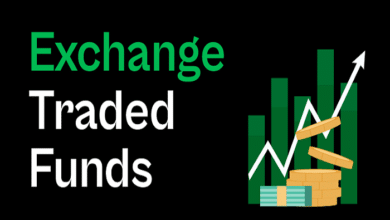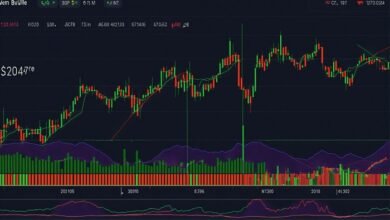
Introduction
The market is a dynamic and multifaceted entity that plays a crucial role in the economy. Whether you’re an investor, business owner, or consumer, understanding the market is essential for making informed decisions. This guide delves into the various aspects of the market, including its types, functions, trends, and strategies for success.
The Market
At its core, the market is a system where buyers and sellers interact to exchange goods, services, and assets. The market determines prices through supply and demand dynamics. By understanding the market, individuals and businesses can navigate economic fluctuations and capitalize on opportunities.
Types of Markets
The market can be categorized into several types, each with its own characteristics and functions. Common types include:
- Stock Market: Where shares of publicly traded companies are bought and sold.
- Bond Market: Involves the trading of debt securities issued by corporations and governments.
- Commodity Market: Deals with the buying and selling of physical goods like oil, gold, and agricultural products.
- Forex Market: The global marketplace for trading currencies.
- Real Estate Market: Involves the buying, selling, and renting of properties.
Understanding these types helps in recognizing the diversity and specialization within the market.
The Role of the Market in the Economy
The market plays a pivotal role in the economy by facilitating the exchange of goods and services, allocating resources efficiently, and driving economic growth. It influences production decisions, employment rates, and consumer behavior. By understanding the market’s role, one can appreciate its impact on everyday life and long-term economic stability.
Market Trends and Analysis
Staying informed about market trends is crucial for making strategic decisions. Market analysis involves studying historical data, current events, and future predictions to identify trends. Common methods include:
- Technical Analysis: Examines price patterns and market indicators.
- Fundamental Analysis: Assesses economic factors, financial statements, and industry conditions.
- Sentiment Analysis: Gauges market sentiment through news, social media, and surveys.
Understanding market trends and analysis helps in anticipating changes and planning accordingly.
Strategies for Succeeding in the Market
Success in the market requires well-thought-out strategies. Some key strategies include:
- Diversification: Spreading investments across various assets to reduce risk.
- Timing: Identifying the right time to buy or sell based on market conditions.
- Research: Conducting thorough research to make informed decisions.
- Risk Management: Implementing measures to protect against potential losses.
These strategies are essential for navigating the market effectively.
The Impact of Technology on the Market
Technology has revolutionized the market, making it more accessible and efficient. Innovations such as online trading platforms, algorithmic trading, and blockchain technology have transformed how markets operate. Understanding the impact of technology helps in leveraging new tools and staying competitive.
Market Regulations and Policies
Regulations and policies play a critical role in ensuring market stability and protecting participants. Regulatory bodies like the SEC (Securities and Exchange Commission) in the United States oversee market activities to prevent fraud and maintain fairness. Being aware of market regulations and policies is vital for compliance and risk management.
Globalization and the Market
Globalization has expanded the reach and complexity of the market. It enables cross-border trade, investment, and economic integration. However, it also introduces challenges such as currency fluctuations, geopolitical risks, and regulatory differences. Understanding the effects of globalization on the market is crucial for international business and investment strategies.
Ethical Considerations in the Market
Ethical considerations are increasingly important in the market. Issues such as insider trading, market manipulation, and corporate governance impact trust and fairness. Adopting ethical practices and promoting transparency are essential for maintaining integrity in the market.
Future Trends in the Market
The market is continually evolving, with future trends shaping its landscape. Key trends to watch include:
- Sustainable Investing: Growing focus on environmental, social, and governance (ESG) factors.
- Cryptocurrency and Digital Assets: Increasing acceptance and regulation of digital currencies.
- Artificial Intelligence: Enhanced market analysis and trading algorithms through AI.
Staying updated with these trends ensures readiness for future market developments.
Conclusion
The market is a complex and dynamic system that significantly impacts the economy and individual financial decisions. By understanding its types, functions, trends, and strategies, one can navigate the market effectively. Embracing technology, adhering to regulations, and considering ethical implications are essential for success. Staying informed about future trends will help in adapting to changes and seizing new opportunities.
FAQs
- What is the market? The market is a system where buyers and sellers interact to exchange goods, services, and assets, with prices determined by supply and demand dynamics.
- What are the main types of markets? Main types include the stock market, bond market, commodity market, forex market, and real estate market, each with distinct characteristics and functions.
- How does the market impact the economy? The market facilitates the exchange of goods and services, allocates resources efficiently, and drives economic growth, influencing production, employment, and consumer behavior.
- What strategies are essential for succeeding in the market? Key strategies include diversification, timing, thorough research, and risk management to navigate the market effectively and reduce potential risks.
- What future trends are shaping the market? Future trends include sustainable investing, the rise of cryptocurrency and digital assets, and the integration of artificial intelligence in market analysis and trading.





